If you’re a homesteader now or aspire to be one, sooner or later you’re going to start a backyard chicken flock. If you’re planning on getting those chickens soon, you should start thinking about what kind of breed you’d like to get.
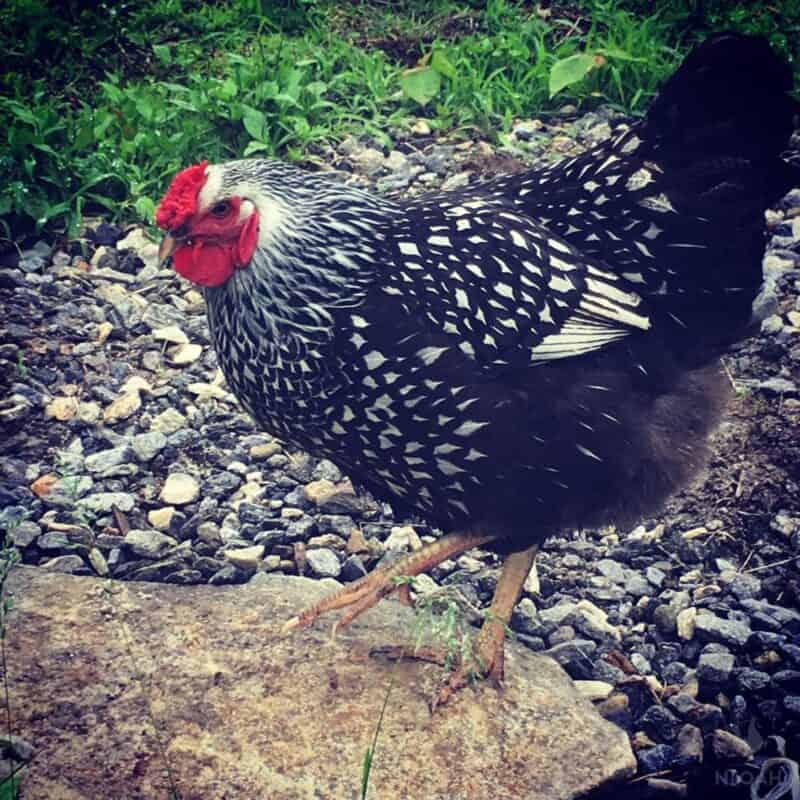
The so-called dual-purpose birds, which lay eggs reliably and also grow big enough and fast enough to raise for food, are often the best choice for a productive homestead. One of the best dual-purpose chicken breeds for homesteaders to consider is the Wyandotte.
Wyandotte chickens have been a staple of American homesteads and backyards for well over a century. These birds are heavy-bodied prolific layers of brown eggs and are especially suited to cold weather homesteads. They can keep your homestead supplied with eggs throughout all four seasons and make great table fare as well.
Additionally, they are an easy chicken to find and easy to sell or trade to other homesteaders, too. Let’s take an in-depth look at the Wyandotte chicken breed, so you can learn why this may be a great chicken to add to your flock.
Breed Origin and History
While many chicken breeds originate from across the world, Wyandotte chickens are truly an all-American breed. Wyandottes were developed in upstate New York in the 1870s.
According to the American Livestock Conservancy, this breed was originally called the American Sebright, due to its similar appearance to the popular British bantam breed. However, the breed’s name was formally changed in 1883, when it was admitted into the American Poultry Association’s standard of perfection.
The Wyandotte name is derived from the indigenous people who had once populated upstate New York and adjacent Canadian territories. There was originally one variety of this breed, the Silver Laced Wyandotte, but over the years many other Wyandotte color varieties have been developed.
Wyandottes were yet another heritage breed of chicken that was in decline in the late 20th Century as poultry farming was industrialized, small farms disappeared and fewer chicken breeds were utilized for egg and meat production.
However, thanks to the work of the American Livestock Conservancy, heritage chicken breed enthusiasts, and a rise in sustainable farming, farmers markets, and homesteading at the beginning of the 21st Century, Wyandotte chickens have made a resounding comeback.
The American Livestock Conservancy removed the breed from its priority list in 2016, and no longer considers the breed endangered.
As a homesteader looking for heritage breeds of livestock to raise, this is great news; unlike rarer breeds of chickens that have not yet recovered from decline, Wyandotte chickens are commonly available from most major online hatcheries, and it is easy to find them on websites like Craigslist or from local homesteaders in your town or county.
Wyandotte Breed Traits
Upstate New York is infamous for its brutal winters, and the Wyandotte breed was developed specifically to thrive in those cold weather temperature extremes. The breed has a close-fitting rose come atop its head, which is far less susceptible to potentially fatal frostbite than many other chicken breeds.
It is also much more heavy-bodied than other types of chickens, with a very think set of feathers. Both of these breed traits were developed to make the Wyandotte exceptionally cold hardy. Thanks to their attributes, Wyandottes thrive during those long winters in the Northern United States and other cold regions.
It is not unusual to find your flock of Wyandottes scratching through the snow and ice on a cold winter day, looking for easy meals while other poultry stay put in their coops.
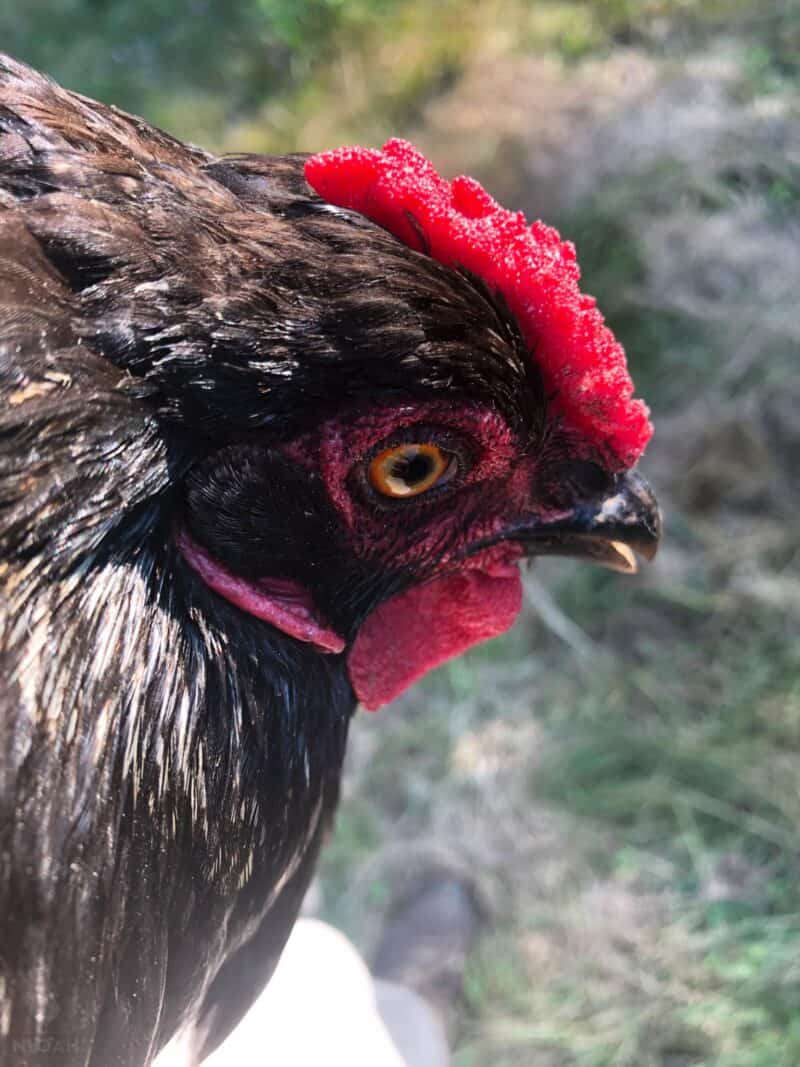
Wyandotte chickens are reliable layers of large, light brown eggs that are uniform in appearance. Unlike many other breeds whose egg laying goes dormant during colder weather, most Wyandottes will continue laying throughout the winter.
They are moderate to good setters as well. The breed is relatively fast growing, and their heavy-bodied nature makes them a great choice as a meat chicken, too. Their large size also makes them easy to process, another plus for the homesteaders who have to butcher their own birds.
Wyandotte chickens are very active and prefer to free range throughout the day. The hens generally have good dispositions and are friendly when raised up as chicks.
However, they are not quite as “pet-like” as some other chicken breeds. Wyandotte roosters can be somewhat aggressive once they’re grown, but they’re no worse than roosters from other heritage breeds.
Breed Varieties
The Wyandotte chicken breed comes in many different varieties, or color variations, and the American Poultry Association recognizes nine of them: Silver Laced, Golden Laced, Columbian, White, Black, Buff, Partridge, Silver Penciled, and Blue.
The Silver Laced Wyandotte, which was the original breed variety, remains the most common, but most of the other varieties are not particularly hard to find, either. Let’s take a quick look at the different Wyandotte varieties.
Silver Laced
This is the original Wyandotte variety; all of the other Wyandotte breed varieties were subsequently developed from this one. Silver Laced Wyandottes are noted for their silvery white feathers, each of which has a distinctive, shiny black edging that gives it the appearance of a suit of finely made armor.
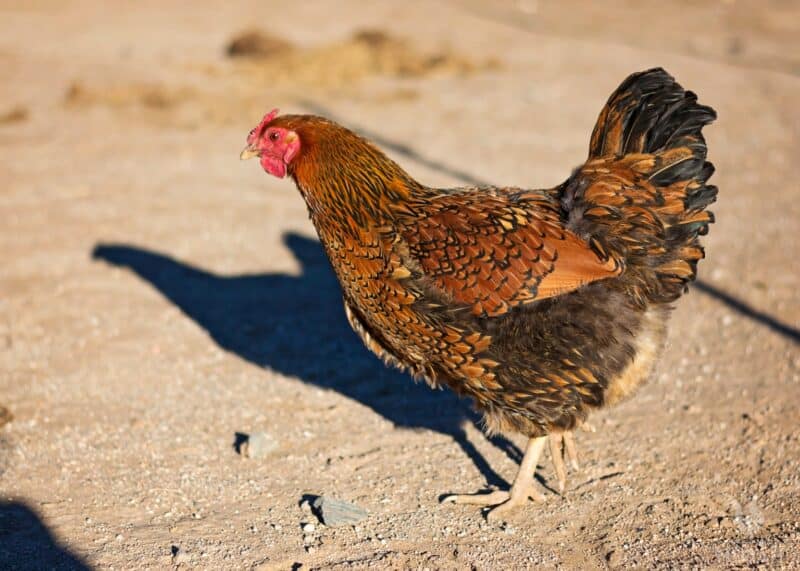
Gold Laced Wyandottes
Gold Laced Wyandottes are another common variety of this breed, with a similar color pattern to their Silver Laced brethren. However, Gold Laced Wyandottes have lustrous golden-brown feathers edged with shiny black.
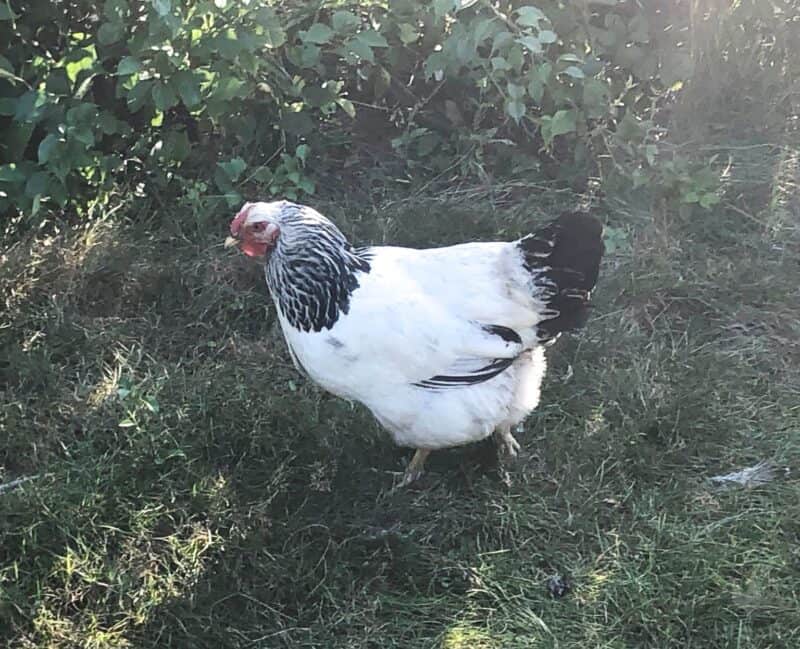
Columbian Wyandottes
This is another attractive Wyandotte variety that is relatively easy to find. Colombian Wyandottes have pure white bodies that are contrasted with black-edged white feathers on their necks and tails. They are named after the Columbian Exposition in Chicago, where they were first exhibited in 1893.
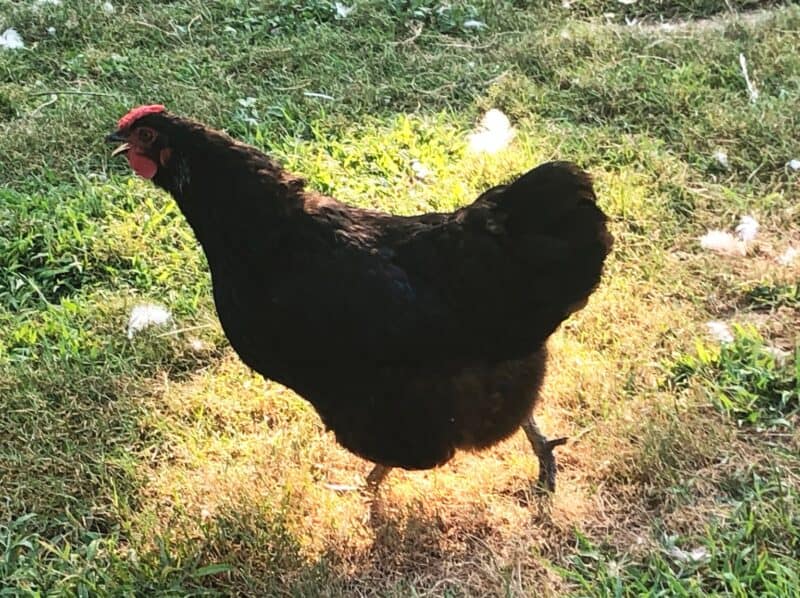
White and Black Wyandottes
Somewhat plainer but no less productive, White and Black Wyandottes are solid colored, stout birds that are either all white, or all black, respectively.
Buff Wyandottes
Buff Wyandottes are a somewhat less common and more beautiful variety of this terrific homesteading bird. Buff Wyandottes have rich, light golden feathers that give them the appearance of being even larger than they already are.
Partridge Wyandottes
This is another uncommon Wyandotte chicken variety, but one that is nonetheless worth searching for. Partridge Wyandottes have a combination of rich dark brown and light to tan feathers that give them a gorgeous, complex appearance.
Silver Penciled Wyandotte
This uncommon and beautiful Wyandotte variety sports silvery white feathers etched with intricate, thin, pencil-like black markings that appear throughout their plumage.
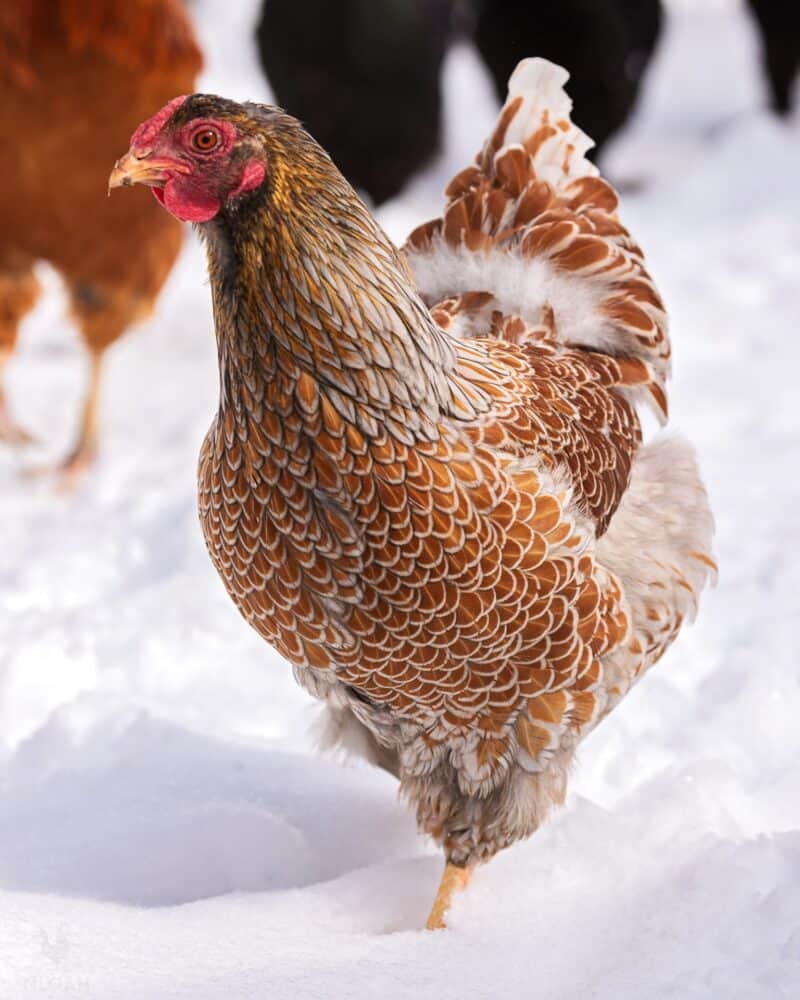
Blue Wyandotte
One of the rarer of the Wyandotte varieties, the Blue Wyandotte has a unique, striking feather pattern comprised of a mix of silvery blue feathers mixed with reddish-brown feathers edged with the same silvery-blue color.
While these are the nine APA recognized Wyandotte varieties, it is not unusual to come across other Wyandotte color variations, especially on homesteads that have several different Wyandotte varieties mixed together in a flock.
While these birds aren’t APA recognized or eligible for most show competitions, they still retain the traits that make Wyandotte chickens a good choice for the homestead: cold hardiness, heavy bodies, and good egg production.
Here’s a great short video that looks at the traits of some of the more popular varieties of Wyandotte chickens:
Now that you have a better understanding of the Wyandotte chicken breed here are some reasons why they might make a great addition to your homestead, and why you might want to select a different chicken breed for your backyard instead.
Wyandotte Chicken Pros
Cold Hardy
If you live in the northern United States, Canada, or some other cold region, this is one of the best chicken breeds out there. Wyandottes will thrive in the cold, and, unlike other less hardy heritage breeds, will continue laying eggs throughout the winter (albeit at a lesser rate than they do during warmer parts of the year).
Their tight-fitting combs also mean that you won’t have to worry about frostbite with these birds like you might with other common heritage breed chickens.
Good Egg Layers
Wyandottes are one of the better heritage breeds when it comes to egg laying, and you can count on your Wyandotte hens to produce just about every single day during the first two years of their lives.
Many poultry experts tend to believe that Silver Laced Wyandottes lay the best out of any other variety in this breed, but the other Wyandotte types are solid egg layers as well.
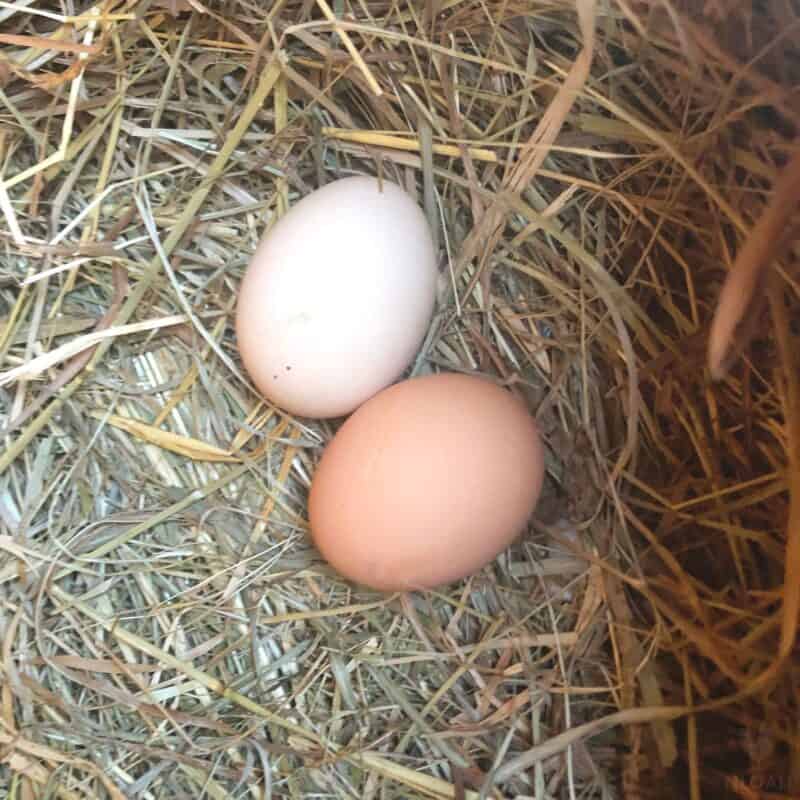
Good Meat Birds
Wyandottes are heavy-bodied when fully grown, and they reach maturity relatively fast, especially if they’re allowed to free range.
Their large size makes them easy to dress out and process when they’re full grown as well. So, if you plan to routinely raise chickens to butcher and add to your freezer, Wyandottes can suit this purpose well.
Excellent Free Rangers
In summer or winter, Wyandotte Chickens are excellent when it comes to free ranging. They enjoy foraging in the yard and beneath bushes for a good morsel, and it is not unusual to see them madly chasing grasshoppers or other bugs in your backyard.
If you plan to free range your chickens in part to supplement their diet and/or reduce feed costs, Wyandotte Chickens are a good choice (however, see below).
Popular and Common
Since the breed’s dramatic comeback in the early 21st Century, Wyandottes have become more popular than ever. This means it is relatively easy to find multiple varieties of the breed for sale in places like Murray McMurray or Cackle Hatcheries, from Craigslist, or from nearby farms or homesteads.
Also, since the breed is so popular and well-known, it is easy to sell chicks and pullets to other homesteaders if you decide to incubate fertile Wyandotte eggs and raise them yourself.
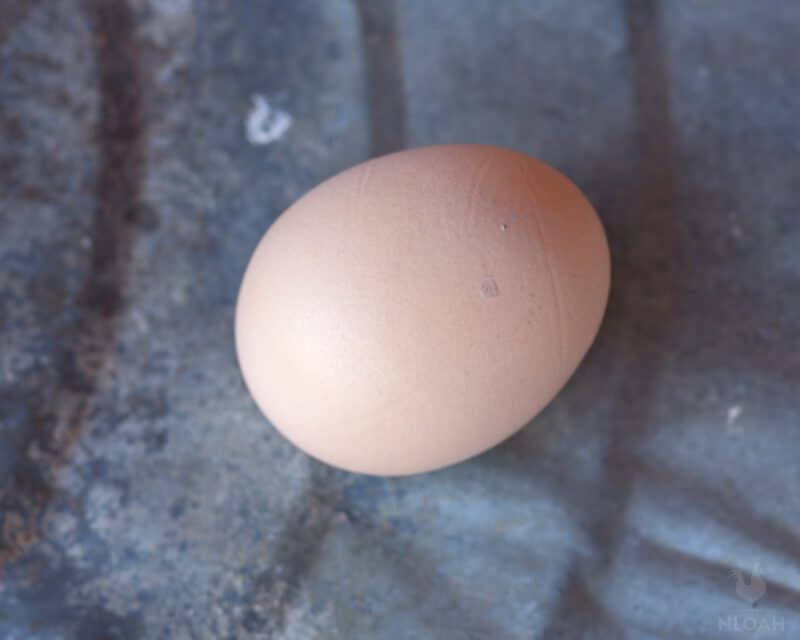
Finally, if your children plan to raise chickens for 4-H or other types of exhibitions, the Wyandotte chicken breed is a good choice for those, too.
Many Color Varieties
No one wants ugly chickens on their homestead, right? Well, Wyandottes come in a wide variety of colors, nearly all of which are beautiful. The breed’s thick feathers and full-bodied shape are attractive as well, and it is pleasing to watch a handsome flock of Wyandottes going about their business son your homestead.
Many people buy chickens based on their appearance alone, so if you plan to raise birds to sell, this is another advantage of Wyandottes on the homestead.
Wyandotte Chicken Cons
Not Great in Heat
Although Wyandottes do just fine on hot summer days (provided they’ve got access to some shade and a good supply of water), their thick plumage and heavy bodies make them less heat tolerant than many other heritage chicken breeds.
If you live in the south or somewhere where it is consistently hot during the summer, you may want to consider some other breed of chickens for your flock.
Super Active
Wyandottes are great free rangers, almost to a fault. This is a very active chicken breed that will wander as far as they can get. They’ll easily hop a fence into a garden or a neighbors’ yard in search of the next easy meal.
You’ll need good fencing and will likely have to clip their wings readily if you do not want your Wyandotte flock to get into your garden. Also, if your neighbors are not big fans of chickens wandering into their yards, you may want to consider some other type of chicken breed.
Mediocre Setters
If you’re looking for a chicken breed that will get broody and set on their eggs, Wyandottes are not the best chicken for this sort of work. While you can induce Wyandotte hens to set on their eggs, they don’t take to it as naturally as some other heritage breeds do, such as Cochins or Dorkings.
However, if you’re not planning to raise chicks, or you don’t mind incubating your chickens’ eggs, then having hens that aren’t that broody will be a non-issue anyway.
NOTE: If you do want to encourage your Wyandotte hens to go broody, you can try some of the techniques noted in this helpful video:
Big and Not Especially Friendly
If you are looking for a good chicken breed for a relatively small amount of space that will be a pet as much as a source of eggs and food, you may want to consider a breed other than Wyandottes.
These birds are big, and will need a moderate amount of space in a coop. They are also not as friendly as some other chicken breeds, such as Silkies or Cochins.
Small Combs
Those rose combs that protect Wyandottes from frostbite are not much to look at, especially on the roosters. If you want a classic looking flock of chickens with more handsome, traditional combs, heritage breeds like Plymouth Rocks or Orpingtons may be a better choice.
However, if you opt for a breed with larger combs, be cognizant of the dangers freezing cold temperatures pose to them during the winter.
Care and Feeding
Wyandottes are relatively easy to care for. However, just like any other chicken breed they do have some basic requirements, to keep them safe, healthy, and productive. Here are some things your Wyandotte flock will need to thrive on your homestead.
Coop
Your Wyandotte chickens will need some sort of appropriately sized coop, especially if you’re keeping them somewhere with a real winter. While they’ll want to range far during the day, Wyandottes will always come back to roost in their coop at night.
A secure, dry, well-ventilated coop will keep them happy and safe from predators. Ensure the coop has adequate space for your flock and enough nesting boxes for them to lay comfortably as well.
You shouldn’t need any sort of light or heat lamp for your Wyandottes in winter, as long as the coop is wind and waterproof and affords adequate space for the birds to roost closely together on cold nights.
Range and Fencing
This breed really likes to free range, so expect your Wyandottes to wander across your homestead throughout the day. If you don’t fence them off effectively, they’ll wander into your garden and help themselves, or head into your neighbors’ yards as well.
If foxes, bobcats, and coyotes are a problem in your area, you may want to invest in some electric fences to keep your chickens contained and predators at bay.
If you want to keep your Wyandottes’ free ranging confined to a set area, a good habit to get into is to clip their wings regularly. This will keep them free ranging happily but prevent them from hopping fences and getting into trouble.
Fortunately, clipping wings, or more precisely, clipping wing feathers, is easy to do and only takes a few seconds, Also, it doesn’t hurt the chickens at all.
Water
While all chickens need a reliable supply of water, this is especially true of Wyandottes in hot weather. Since they are heavier and have thicker feathers than many other breeds, they tend to get really warm during the summer.
It is not unusual to see them panting during hot afternoons. Check their water regularly to ensure that they haven’t run out, or that the chicken waterer hasn’t inadvertently been knocked over. Better yet, you can install chicken nipple waterers on a five-gallon bucket, so that your Wyandottes can drink to their hearts’ desire all day long.
Chicken nipple waterers are inexpensive and easy to find online and in stores.
Food
The heavy-bodied Wyandottes are voracious eaters. If you want them to lay consistently, it is a good idea to provide them a chicken feed such as layer pellets, supplemented by cracked corn or scratch.
Additionally, letting them free range to supplement their own diets is a good idea as well. As mentioned previously, they will range far in search of food, and do a great job supplementing their own diets with the bugs and seeds they find.
Since these birds do eat a great deal, if you have a medium or large sized flock you may want to consider taking measures to ensure your Wyandottes are well-fed while keeping feed costs low at the same time.
You can do this by either raising some live foods for your birds such as mealworms, or by fermenting your chicken grains. Either one of these methods will help you save a little bit of money at the feed store, while ensuring your Wyandottes are getting all of the nutrients they need.
Lifespan
Wyandottes are hardy birds, and if they are well taken care of you can expect them to live for five to seven years. However, they are in their egg-laying prime for the first two years; after that, you can expect their egg production to decline precipitously.
If you’re only keeping your birds for their eggs, it is a good idea to butcher them for the slow cooker in the autumn of their second year, or to sell them to someone who is interested in keeping a chicken or two as pets only.
Parting Thoughts: A Great Heritage Breed for the Cold Weather Homesteader
If you’re a homesteader in the Northern United States, or other places with cold winters, Wyandottes may be the perfect chicken breed for you. They thrive in the cold and keep laying during the winter.
They are also fun to watch as they range around your homestead looking for the next easy meal. Wyandottes are an easy bird to find and they’re also easy to sell as well, so a small flock of Wyandotte pullets will be ready to work on your homestead right away.
Additionally, if you do decide to raise Wyandotte chickens, you’ll be ensuring the survival of a heritage livestock breed that was created more than a century ago for use by farmers and homesteaders just like you.
Keeping the Wyandotte chicken breed alive and well will help ensure that future homesteaders who follow in your footsteps will be able to raise these terrific chickens in their back yard as well.
So, if you think this is the right chicken breed for you, go find some Wyandotte chickens for sale today and bring them back to your homestead!
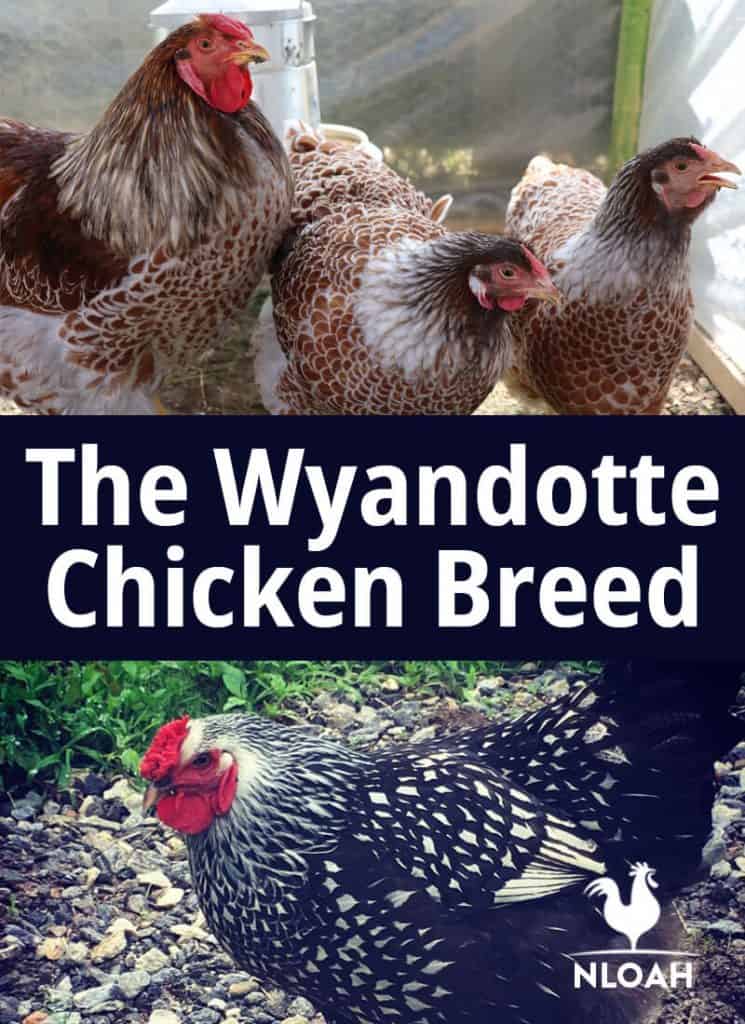
When Tom Harkins is not busy doing emergency repairs to his 200 year-old New England home, he tries to send all of his time gardening, home brewing, foraging, and taking care of his ever-growing flock of chickens, turkey and geese.
